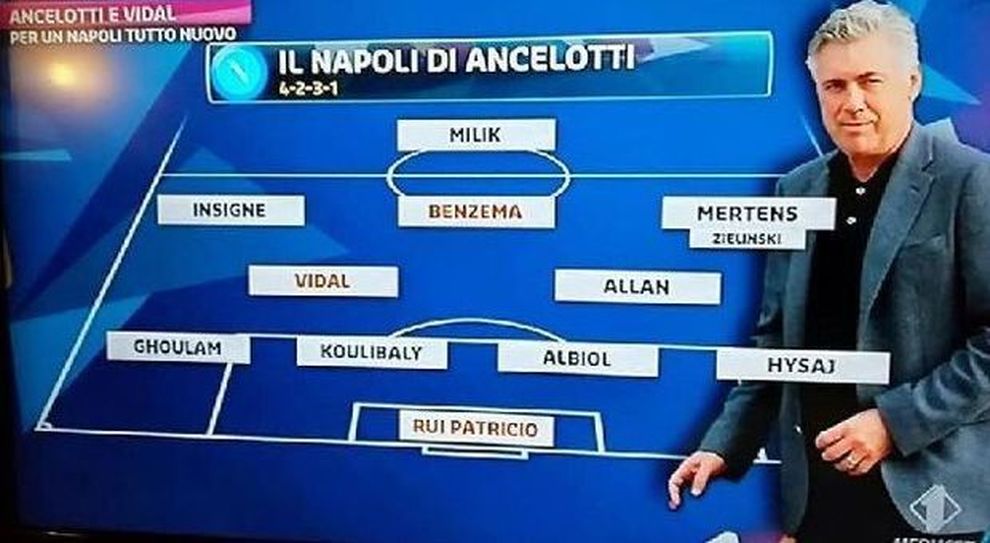And so the club offered a three-pronged explanation. They said performances had been disappointing, they said Ancelotti’s methods — both in training and in terms of tactics — were antiquated and lacking in intensity and they said five senior players had turned against him.
The performance argument is going to be subjective. Aesthetics aside, the degree to which you can use data to measure Bayern’s performances suggests that not much has changed or, if anything, matters had improved slightly. Expected goals were up (2.37 per game this season from 2.23 last season), expected goals conceded were down (0.80 from 0.83). Considering that the side lost two key veterans — Philipp Lahm and Xabi Alonso — to retirement and that important players like Manuel Neuer, David Alaba and Jérôme Boateng were injured for at least half the matches thus far, you wonder how terrible it could have been. Or, at least, how different from last season.
The charge of antiquated training and tactics is even more problematic. Not only did Bayern know what they were getting when they hired Ancelotti, they got to see him up close for 14 months before sacking him. If that really was the problem, why not sack him in the summer and bring in a replacement?
Assuming he did not suddenly decide to go retro this summer — perhaps bringing back medicine balls and ten-mile runs while taking naps during sessions — you wonder why it took them so long to notice what his methods are and even longer to figure out that they didn’t like them. Of all the reasons given, this seems to be the weakest. Or at least the one that ought to shift blame back on the club.
Uli Hoeness, the Bayern president, suggested that Ancelotti had lost the trust of the club’s leaders in the dressing room. “As a manager, you can’t have the prominent players in your team against you,” he told a German radio station on Thursday night. “I’ve learned an important lesson in life: your most dangerous enemy is the one right there in your bed. That’s why we had to act.”
German media quickly speculated that Hoeness was referring to the likes of Arjen Robben, Franck Ribéry, Thomas Müller and Boateng. It’s certainly plausible. Robben and Ribéry will be 34 and 35 respectively by the season’s end. Müller endured his worst season as a professional last year and Boateng missed much of 2016-17 through injury. Part of Ancelotti’s appeal, historically, was his ability to extract the best from veteran superstars and extend their careers: apparently, with this quartet, he had come up short. In fact, cut through the party line and there’s a much deeper dysfunctionality at this club, one that goes beyond the lack of joined-up thinking with regards to Ancelotti’s style and that — if it was really so inadequate — it should have been dealt with in the summer.
The bigger misstep is in how the transition and rejuvenation of this squad has been handled. Robben and Ribéry are out of contract in June. That two guys of that age who clearly aren’t part of the club’s future should wield so much power to get a manager axed is tough to swallow.
Throw in Neuer, Boateng, Müller, Robert Lewandowski, Mats Hummels, Rafinha, Javi Martínez and Arturo Vidal and you have ten players aged 28 or over, which suggests Bayern’s window of opportunity for success is closing. That means you either stick with it and go all-in, perhaps with further short-term investment, or you plan for the future.
Bayern got stuck somewhere in between this summer, possibly because, from the outside, the club’s two-headed leadership structure — Hoeness and Karl-Heinz Rummenigge, the chief executive and Ancelotti’s biggest backer — often appear to act at cross purposes. They added promising players who are still raw (such as Niklas Süle), blue-collar midfielders (Corentin Tolisso and Sebastian Rudy) and a star-crossed gamble/reclamation project in James Rodríguez.
Ancelotti’s pleas to pick a strategy and either usher out the veterans and rebuild or add instant quality (such as Alexis Sánchez) to win straight away were not heeded. And all this played out against a backdrop that saw Bayern’s peers spend big while their transfer record — the £37 million spent on Tolisso — ranks 64th all-time, a fact that Lewandowski alluded to in an uncomfortable interview with Der Spiegel last month.
Willy Sagnol, Ancelotti’s club-appointed assistant, takes over until the end of the season. They will still be competitive — there is too much talent there — but what’s obvious is that some serious forward-planning is now required. And that goes beyond simply chasing a flavour-of-the-month manager, such as Julian Nagelsmann or Thomas Tuchel. Without a clear idea from the top, and the courage to execute at the right time, you’re only going to get so far. Just as you can only spin justifications for your actions to a certain point.











 is he human?"
is he human?"